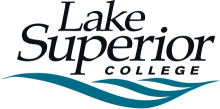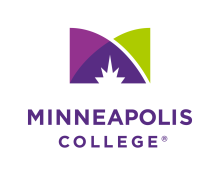Degree programs
Economics BS
Economics describes and analyzes the organization and operation of an economic system. Learn more…
About Transfer Pathways
Transfer Pathways can help you earn a bachelor’s degree without losing credits or taking extra courses. Transfer Pathways are designed for you to complete a 60 credit associate’s degree at a Minnesota State college, then transfer to Metropolitan State University and complete the final 60 credits to earn a bachelor’s degree.
Working closely with your academic advisor at both the community college and Metro State will ensure you select the correct courses in the right sequence in order to graduate in a timely manner.
About Metro State
- Is a fully accredited, comprehensive university, a member of the Minnesota State higher education system, and offer bachelor’s, master’s, and doctoral degrees in more than 60 programs.
- Is unique as over 87% of our students are transfer students who started their academic journey elsewhere.
- Offers evening, online and hybrid course options, as well as day classes to better fit working and caregiving adult schedules.
Once admitted, contact your Metro State academic advisor early in your program to get the most out of your education, such as completing two majors, adding a minor related to your career goals, or incorporating prerequisites required for graduate school.
Nearing completion of your associate’s degree?
We encourage you to take the next steps today in learning more about what Metropolitan State can offer you and how to enroll, Learn more or visit campus.
Metro State Curriculum
Courses and requirements in addition to eligibility criteria some programs have are found on each program’s page. A grade of C- or higher is required for major courses, including transfer coursework.
A sample plan is provided below for the remaining 60 credits of coursework required at Metro State after completion of the corresponding Transfer Pathway degree. Use your Degree Audit to review and confirm your remaining requirements at Metro State. Part-time options are also available.
Graduation/Degree requirements, course list for General Education, Upper Division Liberal Studies (LS), and Racial Issue Graduation Requirements (RIGR) are available to view on the Academic and graduation requirements page.
Notes: Recommend to select MnTC courses to satisfy two goal areas if needed
Upper Division Liberal Studies (LS) = 8 upper-division credits required
Racial Issue Graduation Requirement (RIGR)= 3 credits required
Students complete either the Business track or the Economics track.
Economics (Business Track) BS full-time sample plan
Semester 1: 16 credits
| Course No. | Course Name | Credits |
|---|---|---|
| ECON 420 | Money, Banking and Financial Institutions | 4 |
| Choose One | MATH 208 App. Calculus (Prerequisite: MATH 120) or MATH 210 Calculus I (Prerequisite: MATH 120) or ECON 300 Analytical & Quantitative Methods | 4 |
| MIS 100 | Fundamentals of IT in Organizations | 4 |
| ACCT 210 | Financial Accounting | 4 |
Semester 2: 16 credits
| Course No. | Course Name | Credits |
|---|---|---|
| ECON 496 | Managerial Economics | 4 |
| Economics Major Elective | 4 | |
| Upper Division (300-400 level coursework) Elective | 4 | |
| Racial Issue Graduation Requirement (see note below) | 4 |
Semester 3: 15 credits
| Course No. | Course Name | Credits |
|---|---|---|
| ECON 314 | International & Comparative Economics | 4 |
| Economics Major Elective | 4 | |
| Upper Division (300-400 level coursework) Elective | 4 | |
| Racial Issue Graduation Requirement (see note below) | 3 |
Semester 4: 13 credits
| Course No. | Course Name | Credits |
|---|---|---|
| Economics Major Elective | 4 | |
| Elective | 5 | |
| ECON 497 | Economics Research and Forecasting | 4 |
Economics (Business Track) BS part-time sample plan
Semester 1: 8 credits
| Course No. | Course Name | Credits |
|---|---|---|
| ECON 420 | Money, Banking and Financial Institutions | 4 |
| Choose One | MATH 208 App. Calculus (Prerequisite: MATH 120) or MATH 210 Calculus I (Prerequisite: MATH 120) or ECON 300 Analytical & Quantitative Methods | 4 |
Semester 2: 8 credits
| Course No. | Course Name | Credits |
|---|---|---|
| MIS 100 | Fundamentals of IT in Organizations | 4 |
| ACCT 210 | Financial Accounting | 4 |
Semester 3: 8 credits
| Course No. | Course Name | Credits |
|---|---|---|
| ECON 496 | Managerial Economics | 4 |
| Economics Major Elective | 4 |
Semester 4: 8 credits
| Course No. | Course Name | Credits |
|---|---|---|
| FIN 390 | Principles of Finance | 4 |
| Upper Division (300-400 level coursework) Elective | 4 |
Semester 5: 8 credits
| Course No. | Course Name | Credits |
|---|---|---|
| ECON 314 | International & Comparative Economics | 4 |
| Upper Division (300-400 level coursework) Elective | 4 |
Semester 6: 7 credits
| Course No. | Course Name | Credits |
|---|---|---|
| Economics Major Elective | 4 | |
| Racial Issue Graduation Requirement (see note below) | 4 |
Semester 7: 6 credits
| Course No. | Course Name | Credits |
|---|---|---|
| Economics Major Elective | 4 | |
| Elective | 2 |
Semester 8: 7 credits
| Course No. | Course Name | Credits |
|---|---|---|
| ECON 497 | Economics Research and Forecasting | 4 |
| Elective | 3 |
Economics (Economics Track) BS full-time sample plan
Semester 1: 16 credits
| Course No. | Course Name | Credits |
|---|---|---|
| ECON 420 | Money, Banking and Financial Institutions | 4 |
| Choose One | MATH 208 App. Calculus (Prerequisite: MATH 120) or MATH 210 Calculus I (Prerequisite: MATH 120) or ECON 300 Analytical & Quantitative Methods | 4 |
| MIS 100 | Fundamentals of IT in Organizations | 4 |
| Economics Major Elective | 4 |
Semester 2: 15 credits
| Course No. | Course Name | Credits |
|---|---|---|
| ECON 351 | Intermediate Macroeconomics | 4 |
| Economics Major Elective | 4 | |
| Economics Major Elective | 4 | |
| Elective | 3 |
Semester 3: 15 credits
| Course No. | Course Name | Credits |
|---|---|---|
| ECON 352 | Intermediate Microeconomics | 4 |
| Economics Major Elective | 4 | |
| Elective | 4 | |
| Racial Issue Graduation Requirement (see note below) | 3 |
Semester 4: 14 credits
| Course No. | Course Name | Credits |
|---|---|---|
| Upper Division (300-400 level coursework) Elective | 4 | |
| Elective | 2 | |
| ECON 497 | Economics Research and Forecasting | 4 |
Economics (Economics Track) BS part-time sample plan
Semester 1: 8 credits
| Course No. | Course Name | Credits |
|---|---|---|
| ECON 420 | Money, Banking and Financial Institutions | 4 |
| Choose One | MATH 208 App. Calculus (Prerequisite: MATH 120) or MATH 210 Calculus I (Prerequisite: MATH 120) or ECON 300 Analytical & Quantitative Methods | 4 |
Semester 2: 8 credits
| Course No. | Course Name | Credits |
|---|---|---|
| MIS 100 | Fundamentals of IT in Organizations | 4 |
| Economics Major Elective | 4 |
Semester 3: 8 credits
| Course No. | Course Name | Credits |
|---|---|---|
| ECON 351 | Intermediate Macroeconomics | 4 |
| Economics Major Elective | 4 |
Semester 4: 7 credits
| Course No. | Course Name | Credits |
|---|---|---|
| Elective | 3 | |
| Economics Major Elective | 4 |
Semester 5: 8 credits
| Course No. | Course Name | Credits |
|---|---|---|
| ECON 352 | Intermediate Microeconomics | 4 |
| Upper Division (300-400 level coursework) Elective | 4 |
Semester 6: 7 credits
| Course No. | Course Name | Credits |
|---|---|---|
| Racial Issue Graduation Requirement (see note below) | 3 | |
| Economics Major Elective | 4 |
Semester 7: 7 credits
| Course No. | Course Name | Credits |
|---|---|---|
| Upper Division (300-400 level coursework) Elective | 3 | |
| Elective | 3 |
Semester 8: 7 credits
| Course No. | Course Name | Credits |
|---|---|---|
| Elective | 3 | |
| ECON 497 | Economics Research and Forecasting | 4 |
Note: A course may fulfill multiple requirements but no more than two goal areas. For example:
ECON 315 Economics of Diversity = Goal 5, Goal 7, Liberal Studies
HRM 335 Understanding and Addressing Race in the Workplace = Goal 7, Liberal Studies, Racial Issue Graduation Requirement
MGMT 360 Managing a Diverse Workforce = Goal 7, Liberal Studies, Racial Issue Graduation Requirement











